List of countries by system of government
| Part of the Politics series | ||||||||
| Basic forms of government | ||||||||
|---|---|---|---|---|---|---|---|---|
| Power structure | ||||||||
|
||||||||
| Power source | ||||||||
|
||||||||
| Power ideology | ||||||||
|
||||||||
| Politics portal | ||||||||
This is a list of the states categorized by system of government.
List of countries
UN member states and observers
| Name | Constitutional form | Head of state | Basis of executive legitimacy |
|---|---|---|---|
| Republic | Executive | Presidency is independent of legislature | |
| Republic | Ceremonial | Ministry is subject to parliamentary confidence | |
| Republic | Executive | Presidency independent of legislature; ministry subject to parliamentary confidence | |
| Constitutional monarchy | Ceremonial | Ministry is subject to parliamentary confidence | |
| Republic | Executive | Presidency is independent of legislature | |
| Constitutional monarchy | Ceremonial | Ministry is subject to parliamentary confidence | |
| Republic | Executive | Presidency is independent of legislature | |
| Republic | Executive | Presidency independent of legislature; ministry subject to parliamentary confidence | |
| Constitutional monarchy | Ceremonial | Ministry is subject to parliamentary confidence | |
| Republic | Ceremonial | Ministry is subject to parliamentary confidence | |
| Republic | Executive | Presidency independent of legislature; ministry subject to parliamentary confidence | |
| Constitutional monarchy | Ceremonial | Ministry is subject to parliamentary confidence | |
| Constitutional monarchy | Executive | Monarch personally exercises power in concert with other institutions | |
| Republic | Ceremonial | Ministry is subject to parliamentary confidence | |
| Constitutional monarchy | Ceremonial | Ministry is subject to parliamentary confidence | |
| Republic | Executive | Presidency is independent of legislature | |
| Constitutional monarchy | Ceremonial | Ministry is subject to parliamentary confidence | |
| Constitutional monarchy | Ceremonial | Ministry is subject to parliamentary confidence | |
| Republic | Executive | Presidency is independent of legislature | |
| Constitutional monarchy | Executive | Monarch personally exercises power in concert with other institutions | |
| Republic | Executive | Presidency is independent of legislature | |
| Republic | Ceremonial | Ministry is subject to parliamentary confidence | |
| Republic | Executive | Presidency is elected by legislature; ministry may be, or not be, subject to parliamentary confidence | |
| Republic | Executive | Presidency is independent of legislature | |
| Absolute monarchy | Executive | All authority vested in absolute monarch | |
| Republic | Ceremonial | Ministry is subject to parliamentary confidence | |
| Republic | Executive | Presidency independent of legislature; ministry subject to parliamentary confidence | |
| Republic | Executive | Presidency is independent of legislature | |
| Constitutional monarchy | Ceremonial | Ministry is subject to parliamentary confidence | |
| Republic | Executive | Presidency is independent of legislature | |
| Constitutional monarchy | Ceremonial | Ministry is subject to parliamentary confidence | |
| Republic | Executive | Presidency independent of legislature; ministry subject to parliamentary confidence | |
| Republic | Executive | Presidency is independent of legislature | |
| Republic | Executive | Presidency is independent of legislature | |
| Republic | Executive | Presidency is independent of legislature | |
| Republic | Executive | Power constitutionally linked to a single political movement | |
| Republic | Executive | Presidency is independent of legislature | |
| Republic | Executive | Presidency is independent of legislature | |
| Republic | Executive | Presidency independent of legislature; ministry subject to parliamentary confidence | |
| Republic | Executive | Presidency is independent of legislature | |
| Republic | Executive | Presidency is independent of legislature | |
| Republic | Executive | Presidency is independent of legislature | |
| Republic | Ceremonial | Ministry is subject to parliamentary confidence | |
| Republic | Executive | Power constitutionally linked to a single political movement | |
| Republic | Executive | Presidency is independent of legislature | |
| Republic | Ceremonial | Ministry is subject to parliamentary confidence | |
| Constitutional monarchy | Ceremonial | Ministry is subject to parliamentary confidence | |
| Republic | Executive | Presidency is independent of legislature | |
| Republic | Ceremonial | Ministry is subject to parliamentary confidence | |
| Republic | Executive | Presidency is independent of legislature | |
| Republic | Executive | Presidency independent of legislature; ministry subject to parliamentary confidence | |
| Republic | Executive | Presidency is independent of legislature | |
| Republic | Executive | Presidency independent of legislature; ministry subject to parliamentary confidence | |
| Republic | Executive | Presidency is independent of legislature | |
| Republic | Executive | Presidency is independent of legislature | |
| Republic | Executive | Power constitutionally linked to a single political movement | |
| Republic | Ceremonial | Ministry is subject to parliamentary confidence | |
| Republic | Ceremonial | Ministry is subject to parliamentary confidence | |
| Republic | Ceremonial | Ministry is subject to parliamentary confidence | |
| Republic | Ceremonial | Ministry is subject to parliamentary confidence | |
| Republic | Executive | Presidency independent of legislature; ministry subject to parliamentary confidence | |
| Republic | Executive | Presidency is independent of legislature | |
| Republic | Executive | Presidency is independent of legislature | |
| Republic | Executive | Presidency independent of legislature; ministry subject to parliamentary confidence | |
| Republic | Ceremonial | Ministry is subject to parliamentary confidence | |
| Republic | Executive | Presidency is independent of legislature | |
| Republic | Ceremonial | Ministry is subject to parliamentary confidence | |
| Constitutional monarchy | Ceremonial | Ministry is subject to parliamentary confidence | |
| Republic | Executive | Presidency is independent of legislature | |
| Republic | Executive | Presidency is independent of legislature | |
| Republic | Executive | Presidency independent of legislature; ministry subject to parliamentary confidence | |
| Republic | Executive | Presidency is independent of legislature | |
| Republic | Executive | Presidency independent of legislature; ministry subject to parliamentary confidence | |
| Absolute monarchy | Executive | All authority vested in absolute monarch | |
| Republic | Executive | Presidency is independent of legislature | |
| Republic | Ceremonial | Ministry is subject to parliamentary confidence | |
| Republic | Ceremonial | Ministry is subject to parliamentary confidence | |
| Republic | Ceremonial | Ministry is subject to parliamentary confidence | |
| Republic | Executive | Presidency is independent of legislature | |
| Republic | Executive | Presidency is independent of legislature | |
| Republic | Ceremonial | Ministry is subject to parliamentary confidence | |
| Republic | Ceremonial | Ministry is subject to parliamentary confidence | |
| Republic | Ceremonial | Ministry is subject to parliamentary confidence | |
| Republic | Ceremonial | Ministry is subject to parliamentary confidence | |
| Constitutional monarchy | Ceremonial | Ministry is subject to parliamentary confidence | |
| Constitutional monarchy | Ceremonial | Ministry is subject to parliamentary confidence | |
| Constitutional monarchy | Executive | Monarch personally exercises power in concert with other institutions | |
| Republic | Executive | Presidency is independent of legislature | |
| Republic | Executive | Presidency is independent of legislature | |
| Republic | Executive | Presidency is elected by legislature; ministry may be, or not be, subject to parliamentary confidence | |
| Republic | Executive | Power constitutionally linked to a single political movement | |
| Republic | Executive | Presidency is independent of legislature | |
| Constitutional monarchy | Executive | Monarch personally exercises power in concert with other institutions | |
| Republic | Ceremonial | Ministry is subject to parliamentary confidence | |
| Republic | Executive | Power constitutionally linked to a single political movement | |
| Republic | Ceremonial | Ministry is subject to parliamentary confidence | |
| Republic | Ceremonial | Ministry is subject to parliamentary confidence | |
| Constitutional monarchy | Ceremonial | Ministry is subject to parliamentary confidence | |
| Republic | Executive | Presidency is independent of legislature | |
| n/a | n/a | No constitutionally-defined basis to current regime | |
| Constitutional monarchy | Executive | Monarch personally exercises power in concert with other institutions | |
| Republic | Executive | Presidency independent of legislature; ministry subject to parliamentary confidence | |
| Constitutional monarchy | Ceremonial | Ministry is subject to parliamentary confidence | |
| Republic | Ceremonial | Ministry is subject to parliamentary confidence | |
| Republic | Executive | Presidency independent of legislature; ministry subject to parliamentary confidence | |
| Republic | Executive | Presidency is independent of legislature | |
| Constitutional monarchy | Ceremonial | Ministry is subject to parliamentary confidence | |
| Republic | Executive | Presidency is independent of legislature | |
| Republic | Executive | Presidency independent of legislature; ministry subject to parliamentary confidence | |
| Republic | Ceremonial | Ministry is subject to parliamentary confidence | |
| Republic | Executive | Presidency is elected by legislature; ministry may be, or not be, subject to parliamentary confidence | |
| Republic | Executive | Presidency independent of legislature; ministry subject to parliamentary confidence | |
| Republic | Ceremonial | Ministry is subject to parliamentary confidence | |
| Republic | Executive | Presidency is independent of legislature | |
| Republic | Executive | Presidency is elected by legislature; ministry may be, or not be, subject to parliamentary confidence | |
| Republic | Ceremonial | Ministry is subject to parliamentary confidence | |
| Constitutional monarchy | Executive | Monarch personally exercises power in concert with other institutions | |
| Republic | Executive | Presidency independent of legislature; ministry subject to parliamentary confidence | |
| Republic | Ceremonial | Ministry is subject to parliamentary confidence | |
| Constitutional monarchy | Executive | Monarch personally exercises power in concert with other institutions | |
| Republic | Executive | Presidency independent of legislature; ministry subject to parliamentary confidence | |
| Republic | Executive | Presidency is elected by legislature; ministry may be, or not be, subject to parliamentary confidence | |
| Republic | Executive | Presidency independent of legislature; ministry subject to parliamentary confidence | |
| Republic | Executive | Presidency is elected by legislature; ministry may be, or not be, subject to parliamentary confidence | |
| Republic | Ceremonial | Ministry is subject to parliamentary confidence | |
| Constitutional monarchy | Ceremonial | Ministry is subject to parliamentary confidence | |
| Constitutional monarchy | Ceremonial | Ministry is subject to parliamentary confidence | |
| Republic | Executive | Presidency is independent of legislature | |
| Republic | Executive | Presidency independent of legislature; ministry subject to parliamentary confidence | |
| Republic | Executive | Presidency is independent of legislature | |
| Constitutional monarchy | Ceremonial | Ministry is subject to parliamentary confidence | |
| Absolute monarchy | Executive | All authority vested in absolute monarch | |
| Republic | Ceremonial | Ministry is subject to parliamentary confidence | |
| Republic | Executive | Presidency is independent of legislature | |
| Republic | Executive | Presidency independent of legislature; ministry subject to parliamentary confidence | |
| Republic | Executive | Presidency is independent of legislature | |
| Constitutional monarchy | Ceremonial | Ministry is subject to parliamentary confidence | |
| Republic | Executive | Presidency is independent of legislature | |
| Republic | Executive | Presidency is independent of legislature | |
| Republic | Executive | Presidency is independent of legislature | |
| Republic | Ceremonial | Ministry is subject to parliamentary confidence | |
| Republic | Executive | Presidency independent of legislature; ministry subject to parliamentary confidence | |
| Absolute monarchy | Executive | All authority vested in absolute monarch | |
| Republic | Executive | Presidency independent of legislature; ministry subject to parliamentary confidence | |
| Republic | Executive | Presidency independent of legislature; ministry subject to parliamentary confidence | |
| Republic | Executive | Presidency is independent of legislature | |
| Constitutional monarchy | Ceremonial | Ministry is subject to parliamentary confidence | |
| Constitutional monarchy | Ceremonial | Ministry is subject to parliamentary confidence | |
| Constitutional monarchy | Ceremonial | Ministry is subject to parliamentary confidence | |
| Republic | Ceremonial | Ministry is subject to parliamentary confidence | |
| Republic | Executive | Presidency is elected by legislature; ministry may be, or not be, subject to parliamentary confidence | |
| Republic | Executive | Presidency independent of legislature; ministry subject to parliamentary confidence | |
| Absolute monarchy | Executive | All authority vested in absolute monarch | |
| Republic | Executive | Presidency independent of legislature; ministry subject to parliamentary confidence | |
| Republic | Ceremonial | Ministry is subject to parliamentary confidence | |
| Republic | Executive | Presidency is independent of legislature | |
| Republic | Executive | Presidency is independent of legislature | |
| Republic | Ceremonial | Ministry is subject to parliamentary confidence | |
| Republic | Ceremonial | Ministry is subject to parliamentary confidence | |
| Republic | Ceremonial | Ministry is subject to parliamentary confidence | |
| Constitutional monarchy | Ceremonial | Ministry is subject to parliamentary confidence | |
| Republic | Ceremonial | Ministry is subject to parliamentary confidence | |
| Republic | Executive | Presidency is elected by legislature; ministry may be, or not be, subject to parliamentary confidence | |
| Republic | Executive | Presidency is independent of legislature | |
| Constitutional monarchy | Ceremonial | Ministry is subject to parliamentary confidence | |
| Republic | Executive | Presidency independent of legislature; ministry subject to parliamentary confidence | |
| Republic | Executive | Presidency is independent of legislature | |
| Republic | Executive | Presidency is elected by legislature; ministry may be, or not be, subject to parliamentary confidence | |
| Absolute monarchy | Executive | All authority vested in absolute monarch | |
| Constitutional monarchy | Ceremonial | Ministry is subject to parliamentary confidence | |
| Republic | Executive | Presidency is elected by legislature; ministry may be, or not be, subject to parliamentary confidence | |
| Republic | Executive | Presidency independent of legislature; ministry subject to parliamentary confidence | |
| Republic | Executive | Presidency is independent of legislature | |
| Republic | Executive | Presidency is independent of legislature | |
| n/a | n/a | No constitutionally-defined basis to current regime | |
| Republic | Executive | Presidency is independent of legislature | |
| Constitutional monarchy | Executive | Monarch personally exercises power in concert with other institutions | |
| Republic | Ceremonial | Ministry is subject to parliamentary confidence | |
| Republic | Executive | Presidency independent of legislature; ministry subject to parliamentary confidence | |
| Republic | Ceremonial | Ministry is subject to parliamentary confidence | |
| Republic | Executive | Presidency is independent of legislature | |
| Constitutional monarchy | Ceremonial | Ministry is subject to parliamentary confidence | |
| Republic | Executive | Presidency is independent of legislature | |
| Republic | Executive | Presidency independent of legislature; ministry subject to parliamentary confidence | |
| Absolute monarchy | Executive | All authority vested in absolute monarch | |
| Constitutional monarchy | Ceremonial | Ministry is subject to parliamentary confidence | |
| Republic | Executive | Presidency is independent of legislature | |
| Republic | Executive | Presidency is independent of legislature | |
| Republic | Executive | Presidency is independent of legislature | |
| Republic | Ceremonial | Ministry is subject to parliamentary confidence | |
| Republic | Executive | Presidency is independent of legislature | |
| Republic | Executive | Power constitutionally linked to a single political movement | |
| Republic | Executive | Presidency independent of legislature; ministry subject to parliamentary confidence | |
| Republic | Executive | Presidency is independent of legislature | |
| Republic | Executive | Presidency is independent of legislature |
Note that Afghanistan, Iran, Pakistan and Mauritania are Islamic Republics.
Other states
The following states control their territory and are recognised by at least one UN member state.
| Name | Constitutional form | Head of state | Basis of executive legitimacy |
|---|---|---|---|
| Republic | Executive | Presidency independent of legislature; ministry subject to parliamentary confidence | |
| Republic | Executive | Presidency independent of legislature; ministry subject to parliamentary confidence | |
| Constitutional monarchy | Ceremonial | Ministry is subject to parliamentary confidence | |
| Republic | Ceremonial | Ministry is subject to parliamentary confidence | |
| Constitutional monarchy | Ceremonial | Ministry is subject to parliamentary confidence | |
| Republic | Executive | Presidency independent of legislature; ministry subject to parliamentary confidence | |
| Republic | Executive | Power constitutionally linked to a single political movement | |
| Republic | Executive | Presidency independent of legislature; ministry subject to parliamentary confidence |
The following states/governments control their territory, but are not recognised by any UN member states.
| Name | Constitutional form | Head of state | Basis of executive legitimacy |
|---|---|---|---|
| Republic | Executive | Presidency independent of legislature; ministry subject to parliamentary confidence | |
| Republic | Executive | Presidency is independent of legislature | |
| Republic | Executive | Presidency independent of legislature; ministry subject to parliamentary confidence |
Map

Legend
- Blue – Full presidential republic
- Yellow – Semi-presidential republic
- Green – Parliamentary republic, executive presidency linked to a parliament
- Orange – Parliamentary republic
- Red – Parliamentary constitutional monarchy in which the monarch does not personally exercise power
- Magenta – Constitutional monarchy in which the monarch personally exercises power, often (but not always) alongside a weak parliament
- Purple – Absolute monarchy
- Brown– Countries where the dominant role of one political party or coalition is codified in the constitution
- Dark green – Countries where constitutional provisions for government have been suspended
- Grey – Countries that do not fit in any of the above listed systems
- Light grey – No government
Note that this chart aims to represent de jure systems of government, not the de facto degree of democracy. Several states constitutionally deemed to be multi-party republics may also be broadly described as authoritarian states.
Systems of governance
Italics indicate states with limited recognition.
Presidential/Separated republics
These are systems in which a president is the active head of the executive branch of government and is elected and remains in office independently of the legislature. The following list includes democratic and non-democratic states:
Full presidential systems
In full presidential systems, the president is both head of state and head of government. There is generally no prime minister, although if one exists he or she serves purely at the pleasure of the president.
Presidential systems
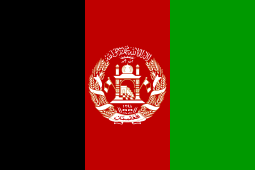 Afghanistan
Afghanistan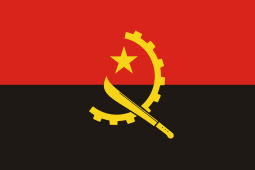 Angola
Angola Argentina
Argentina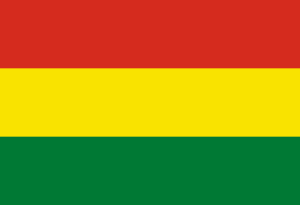 Bolivia
Bolivia Brazil
Brazil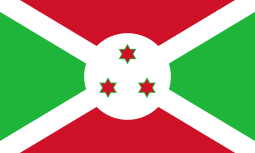 Burundi
Burundi Chile
Chile Colombia
Colombia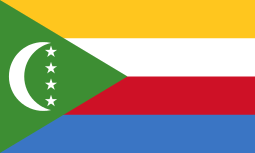 Comoros
Comoros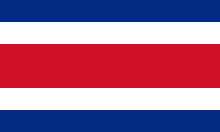 Costa Rica
Costa Rica Cyprus
Cyprus Dominican Republic
Dominican Republic Ecuador
Ecuador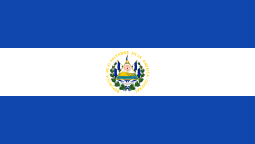 El Salvador
El Salvador Gambia, The
Gambia, The Ghana
Ghana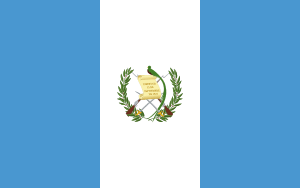 Guatemala
Guatemala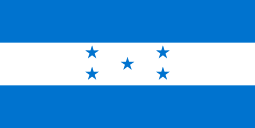 Honduras
Honduras Indonesia
Indonesia Kenya
Kenya Liberia
Liberia Malawi
Malawi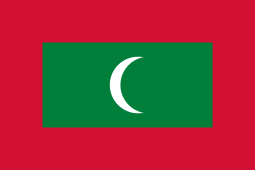 Maldives
Maldives Mexico
Mexico Nicaragua
Nicaragua Nigeria
Nigeria Palau
Palau Panama
Panama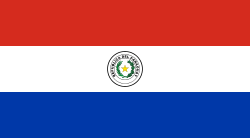 Paraguay
Paraguay Philippines
Philippines Seychelles
Seychelles Sierra Leone
Sierra Leone Somaliland
Somaliland South Sudan
South Sudan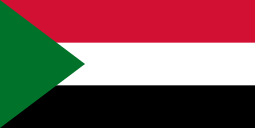 Sudan
Sudan Turkmenistan
Turkmenistan  United States
United States Uruguay
Uruguay Venezuela
Venezuela Zambia
Zambia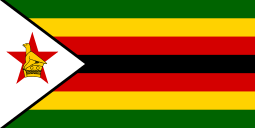 Zimbabwe
Zimbabwe
Presidential systems with a prime minister
Semi-presidential systems
In semi-presidential systems, there is always both a president and a prime minister. In such systems, the president has genuine executive authority, unlike in a parliamentary republic, but the role of a head of government may be exercised by the prime minister.
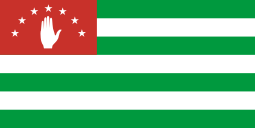 Abkhazia
Abkhazia Algeria
Algeria Armenia
Armenia Azerbaijan
Azerbaijan Burkina Faso
Burkina Faso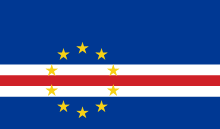 Cape Verde[2]
Cape Verde[2] China, Republic of (Taiwan)
China, Republic of (Taiwan)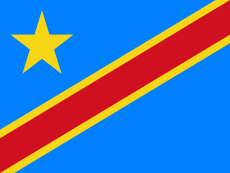 Congo, Democratic Republic of the
Congo, Democratic Republic of the East Timor[2]
East Timor[2] France
France Georgia
Georgia Guinea-Bissau[2]
Guinea-Bissau[2]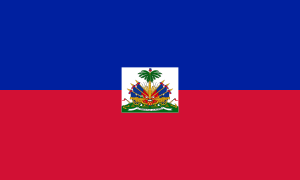 Haiti
Haiti Lithuania
Lithuania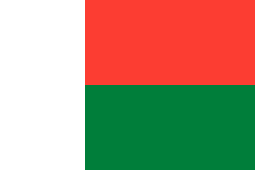 Madagascar
Madagascar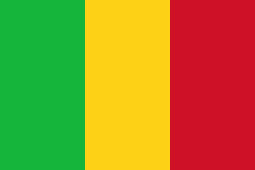 Mali
Mali Mauritania
Mauritania Mongolia
Mongolia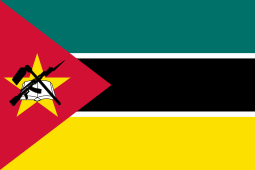 Mozambique[2]
Mozambique[2]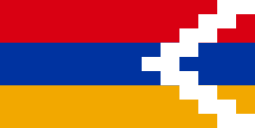 Nagorno-Karabakh
Nagorno-Karabakh Namibia
Namibia Niger
Niger Northern Cyprus
Northern Cyprus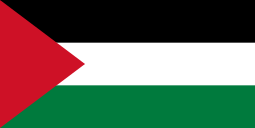 Palestine
Palestine Portugal
Portugal Romania
Romania Russia
Russia São Tomé and Príncipe[2]
São Tomé and Príncipe[2]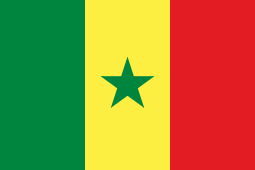 Senegal
Senegal South Ossetia
South Ossetia Syria
Syria Transnistria
Transnistria Tunisia
Tunisia Sri Lanka
Sri Lanka Ukraine
Ukraine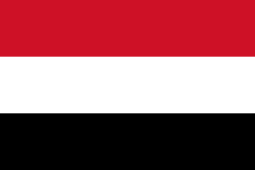 Yemen[3][4]
Yemen[3][4]
Parliamentary republics
A parliamentary republic is a system in which a prime minister is the active head of the executive branch of government and also leader of the legislature. The president's degree of executive power may range from being reasonably significant (e.g. Pakistan) to little (e.g. India) or none at all (e.g. Ireland). Where the president holds little executive power, his or her function is primarily that of a symbolic figurehead.
 Albania
Albania Austria
Austria Bangladesh[5]
Bangladesh[5] Bosnia and Herzegovina[6]
Bosnia and Herzegovina[6] Bulgaria
Bulgaria Croatia
Croatia Czech Republic
Czech Republic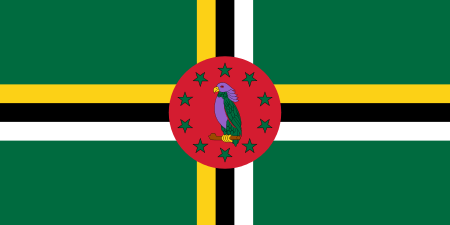 Dominica
Dominica Estonia
Estonia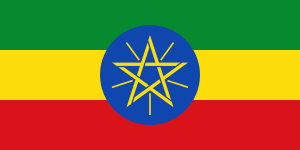 Ethiopia
Ethiopia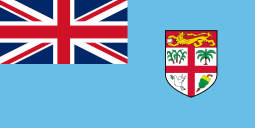 Fiji
Fiji Finland[7]
Finland[7] Germany
Germany Greece
Greece Hungary
Hungary Iceland
Iceland India
India Iraq
Iraq Ireland
Ireland Israel
Israel Italy
Italy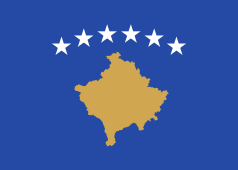 Kosovo
Kosovo Kyrgyzstan
Kyrgyzstan Latvia
Latvia Lebanon
Lebanon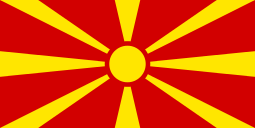 Macedonia
Macedonia Malta
Malta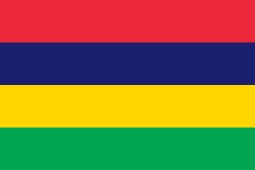 Mauritius
Mauritius Moldova
Moldova Montenegro
Montenegro Nepal
Nepal Pakistan
Pakistan Poland
Poland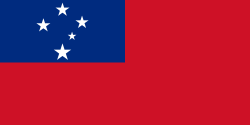 Samoa
Samoa Serbia
Serbia Singapore
Singapore Slovakia
Slovakia Slovenia
Slovenia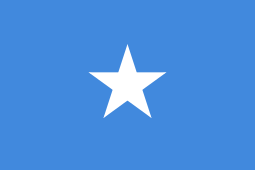 Somalia
Somalia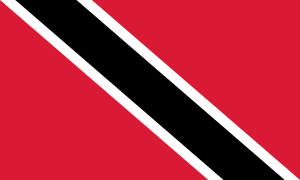 Trinidad and Tobago
Trinidad and Tobago Turkey
Turkey Vanuatu
Vanuatu
Mixed republican systems
A combined head of state and government is elected by the legislature, however they are not subject to parliamentary confidence during their term (although their cabinet may be); the exception is South Africa, where the President may be forced to resign by the Parliament's will.[8]
Directorial systems
In the directorial system a council jointly exercises both state functions and governmental powers (the council is the collective head of state and government). The council is elected by the parliament, but it is not subject to political confidence during its term which has a fixed duration.
Constitutional monarchies
These are systems in which the head of state is a constitutional monarch; the existence of their office and their ability to exercise their authority is established and restrained or held back by constitutional law.
Constitutional monarchies with ceremonial monarchs
Systems in which a prime minister is the active head of the executive branch of government. In some cases the prime minister is also leader of the legislature, in other cases the executive branch is clearly separated from legislature although the entire cabinet or individual ministers must step down in the case of a vote of no confidence.[13][14] The head of state is a constitutional monarch who normally only exercises his or her powers with the consent of the government, the people or their representatives.
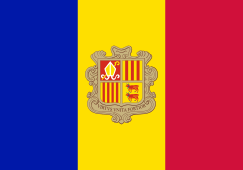 Andorra[15]
Andorra[15]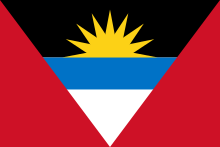 Antigua and Barbuda[16]
Antigua and Barbuda[16] Australia[16]
Australia[16] Bahamas[16]
Bahamas[16]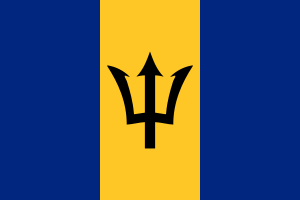 Barbados[16]
Barbados[16].svg.png) Belgium
Belgium Belize[16]
Belize[16]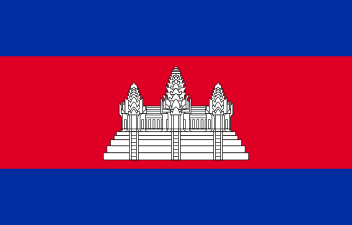 Cambodia
Cambodia Canada[16]
Canada[16]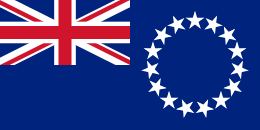 Cook Islands[16][17]
Cook Islands[16][17] Denmark
Denmark Grenada[16]
Grenada[16]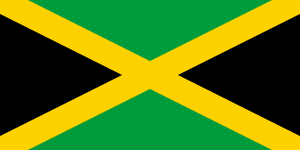 Jamaica[16]
Jamaica[16] Japan
Japan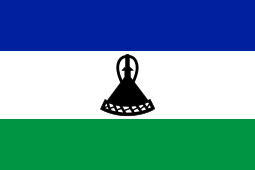 Lesotho
Lesotho Luxembourg
Luxembourg Malaysia
Malaysia Netherlands
Netherlands New Zealand[16]
New Zealand[16]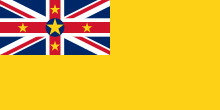 Niue[16][17]
Niue[16][17] Norway
Norway Papua New Guinea[16]
Papua New Guinea[16]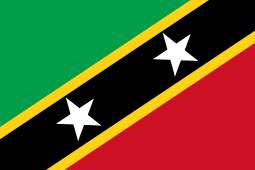 Saint Kitts and Nevis[16]
Saint Kitts and Nevis[16]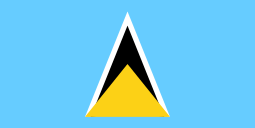 Saint Lucia[16]
Saint Lucia[16]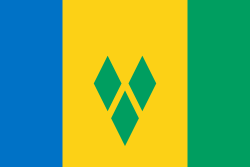 Saint Vincent and the Grenadines[16]
Saint Vincent and the Grenadines[16] Solomon Islands[16]
Solomon Islands[16] Spain
Spain Sweden
Sweden Thailand (military junta)
Thailand (military junta) Tuvalu[16]
Tuvalu[16] United Kingdom[16]
United Kingdom[16]
Constitutional monarchies with active monarchs
The prime minister is the nation's active executive, but the monarch still has considerable political powers that can be used at their own discretion.
Absolute monarchies
Specifically, monarchies in which the monarch's exercise of power is unconstrained by any substantive constitutional law.
Theocracies
States based on a state religion where the head of state is selected by some form of religious hierarchy.
One-party states
States in which political power is by law concentrated within one political party whose operations are largely fused with the government hierarchy (as opposed to states where the law establishes a multi-party system but this fusion is not achieved anyway through electoral fraud or simple inertia). However, some do have elected governments.
 China, People's Republic of (Communist Party leads the United Front) (list)
China, People's Republic of (Communist Party leads the United Front) (list) Cuba (Communist Party) (list)
Cuba (Communist Party) (list)  Eritrea (People's Front for Democracy and Justice) (list)
Eritrea (People's Front for Democracy and Justice) (list) Korea, North (Workers' Party leads the Democratic Front) (list)
Korea, North (Workers' Party leads the Democratic Front) (list)  Laos (People's Revolutionary Party leads the Front for National Construction) (list)
Laos (People's Revolutionary Party leads the Front for National Construction) (list) 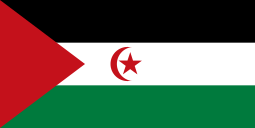 Sahrawi Arab Democratic Republic (Polisario Front) (Politics of the Sahrawi Arab Democratic Republic)
Sahrawi Arab Democratic Republic (Polisario Front) (Politics of the Sahrawi Arab Democratic Republic)
 Vietnam (Communist Party leads the Fatherland Front) (list)
Vietnam (Communist Party leads the Fatherland Front) (list)
Military junta states
The nation's military control the organs of government and all high-ranking political executives are also members of the military hierarchy.
Transitional
States which have a system of government which is in transition or turmoil and are classified with the current direction of change.
Systems of internal governance
Federal
States in which the federal government shares power with semi-independent regional governments. The central government may or may not be (in theory) a creation of the regional governments; prime examples are Switzerland and the United States.
 Argentina (23 provinces and one autonomous city: Buenos Aires)
Argentina (23 provinces and one autonomous city: Buenos Aires) Australia (six states and two territories)
Australia (six states and two territories) Austria (nine states)
Austria (nine states).svg.png) Belgium (three regions and three linguistic communities)
Belgium (three regions and three linguistic communities) Bosnia and Herzegovina (two entities and one district)
Bosnia and Herzegovina (two entities and one district) Brazil (26 states and the Federal District)
Brazil (26 states and the Federal District) Canada (ten provinces and three territories)
Canada (ten provinces and three territories) Comoros (Anjouan, Grande Comore, Mohéli)
Comoros (Anjouan, Grande Comore, Mohéli) Ethiopia (nine regions and two chartered cities)
Ethiopia (nine regions and two chartered cities) Germany (16 states)
Germany (16 states) India (29 states and seven union territories)
India (29 states and seven union territories) Iraq (18 governorates and one region: Kurdistan)
Iraq (18 governorates and one region: Kurdistan) Malaysia (13 states and three federal territories)
Malaysia (13 states and three federal territories) Mexico (31 states and one federal district: Mexico City)
Mexico (31 states and one federal district: Mexico City)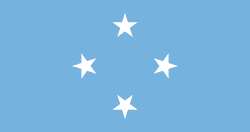 Federated States of Micronesia (Chuuk, Kosrae, Pohnpei and Yap)
Federated States of Micronesia (Chuuk, Kosrae, Pohnpei and Yap) Nepal (14 zones)
Nepal (14 zones) Nigeria (36 states and one federal territory: Federal Capital Territory)
Nigeria (36 states and one federal territory: Federal Capital Territory) Pakistan (4 provinces, 2 autonomous areas and 2 territories)
Pakistan (4 provinces, 2 autonomous areas and 2 territories) Russia (46 oblasts, 22 republics, nine krais, four autonomous okrugs, three federal cities, one autonomous oblast)
Russia (46 oblasts, 22 republics, nine krais, four autonomous okrugs, three federal cities, one autonomous oblast) Saint Kitts and Nevis (Saint Kitts, Nevis)
Saint Kitts and Nevis (Saint Kitts, Nevis) South Sudan (ten states)
South Sudan (ten states) Sudan (17 states)
Sudan (17 states) Switzerland (26 cantons)
Switzerland (26 cantons) United Arab Emirates (seven emirates)
United Arab Emirates (seven emirates) United States (50 states, one incorporated territory, and one federal district: District of Columbia)
United States (50 states, one incorporated territory, and one federal district: District of Columbia) Venezuela (23 states, one capital district and one federal dependency)
Venezuela (23 states, one capital district and one federal dependency)
Unitary states
Regionalised unitary
States in which the central government has delegated some of its powers to regional authorities.
 Bolivia (9 regions, of which 9 are autonomous)
Bolivia (9 regions, of which 9 are autonomous) China (22 provinces, 5 autonomous regions, 4 province-level municipalities, and 2 special administrative regions)
China (22 provinces, 5 autonomous regions, 4 province-level municipalities, and 2 special administrative regions) France (18 regions, of which 6 are autonomous)
France (18 regions, of which 6 are autonomous) Indonesia (34 provinces, of which 5 provinces have special status)
Indonesia (34 provinces, of which 5 provinces have special status) Italy (20 regions, of which 5 are autonomous)
Italy (20 regions, of which 5 are autonomous) Kingdom of the Netherlands (4 constituent countries)
Kingdom of the Netherlands (4 constituent countries)  Philippines (1 autonomous region subdivided into 5 provinces and 113 other provinces and independent cities grouped into 17 other non-autonomous regions)
Philippines (1 autonomous region subdivided into 5 provinces and 113 other provinces and independent cities grouped into 17 other non-autonomous regions) Portugal (2 autonomous regions)
Portugal (2 autonomous regions) Spain (17 autonomous communities, 15 communities of common-regime, 1 community of chartered regime, 3 chartered provinces, 2 autonomous cities)
Spain (17 autonomous communities, 15 communities of common-regime, 1 community of chartered regime, 3 chartered provinces, 2 autonomous cities) Tanzania (21 mainland regions and
Tanzania (21 mainland regions and 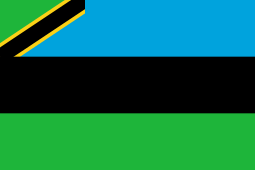 Zanzibar)
Zanzibar) Ukraine (24 oblasts, 2 cities with special status, and
Ukraine (24 oblasts, 2 cities with special status, and  Crimea)
Crimea) United Kingdom (4 constituent countries, 3 devolved administrations)
United Kingdom (4 constituent countries, 3 devolved administrations)
Confederation
European Union
The exact political character of the European Union is debated, some arguing that it is sui generis (unique), but others arguing that it has features of a federation or a confederation. It has elements of intergovernmentalism, with the European Council acting as its collective "president", and also elements of supranationalism, with the European Commission acting as its executive and bureaucracy.[21] But it is not easily placed in any of the above categories.
See also
- List of countries
- List of countries by date of transition to republican system of government
- List of current heads of state and government
- Government
Notes
- ↑ While the office of prime minister exists, the president is both the head of state and government.
- 1 2 3 4 5 Neto, Octávio Amorim; Lobo, Marina Costa (2010). "Between Constitutional Diffusion and Local Politics: Semi-Presidentialism in Portuguese-Speaking Countries". Social Science Research Network. Retrieved 29 December 2015.
- ↑ Article 74 of the Constitution of the Republic of Yemen: "The House of Representatives has the right to withdraw confidence from the Government. Withdrawal of confidence may be requested only after interpellating the Prime Minister or his representative. A request for withdrawing confidence has to be signed by a third of the members of the House and the House may not decide on this request before the elapsing of at least seven days after its submission. Withdrawal of confidence in the Government has to be decided by the majority of members of the House."
- ↑ Article 105 of the Constitution of the Republic of Yemen: "The Prime Minister and ministers are collectively responsible before the Presidential Council and the House of Representatives for the work of the Government."
- ↑ In Bangladesh, a caretaker government during parliamentary elections. The Caretaker government is headed by a Chief Adviser and a group of neutral, non-partisan advisers chosen from the civil society. During this time, the president has jurisdiction over the defence and foreign affairs ministries.
- ↑ Collective presidency consisting of three members; one for each major ethnic group.
- ↑ Formerly a semi-presidential republic, it's now a parliamentary republic according to David Arter, First Chair of Politics at Aberdeen University, who in his "Scandinavian Politics Today" (Manchester University Press, revised 2008 ISBN 9780719078538), he quotes Nousiainen, Jaakko (June 2001). "From semi-presidentialism to parliamentary government: political and constitutional developments in Finland". Scandinavian Political Studies. Wiley. 24 (2): 95–109. doi:10.1111/1467-9477.00048. as follows: "There are hardly any grounds for the epithet 'semi-presidential'." Arter's own conclusions are only slightly more nuanced: "The adoption of a new constitution on 1 March 2000 meant that Finland was no longer a case of semi-presidential government other than in the minimalist sense of a situation where a popularly elected fixed-term president exists alongside a prime minister and cabinet who are responsible to parliament (Elgie 2004: 317)". According to the Finnish Constitution, the President has no possibility to rule the government without the ministerial approval, and substantially has not the power to disband the parliament under its own desire. Finland is actually represented by its Prime Minister, and not by its President, in the Council of the Heads of State and Government of the European Union. The 2012 Constitution reduced the powers of the President even further.
- ↑ "Constitution of South Africa". constitute.org. Retrieved 13 April 2016.
- 1 2 3 4 Combines aspects of a presidential system with those of a parliamentary system. The president is elected by parliament and holds a parliamentary seat, much like a prime minister, but is immune from a vote of no confidence (but not their cabinet), unlike a prime minister.
- 1 2 3 4 5 Combines aspects of a presidential system with those of a parliamentary system. The president is elected by parliament and holds a parliamentary seat, much like a prime minister, but is immune from a vote of no confidence (as well is their cabinet), unlike a prime minister.
- ↑ "Scheda paese Repubblica di San Marino" (pdf) (in Italian). Segreteria di Stato Affari esteri. July 2012. p. 5.
- 1 2 The President of Switzerland serves in a primus inter pares capacity amongst the Swiss Federal Council, the seven-member executive council which constitutes both the presidency and the government.
- ↑ Norwegian Parliament web page
- ↑ CIA factbook on Norway
- ↑ Bishop of Urgell and President of France serve as ex officio co-princes who are have their interests known through a representative.
- 1 2 3 4 5 6 7 8 9 10 11 12 13 14 15 16 17 18 One of sixteen constitutional monarchies which recognize Elizabeth II as head of state, who presides over an independent government. She is titled separately in each country (e.g. Queen of Australia), and notionally appoints a Governor-General to each country other than the United Kingdom to act as her representative. The prime minister is the active head of the executive branch of government and also leader of the legislature. These countries may be known as "Commonwealth realms".
- 1 2 The Cook Islands and Niue are under the sovereignty of the Monarch of New Zealand as self-governing states in free association with New Zealand. New Zealand and its associated states, along with Tokelau and the Ross Dependency, comprise the Realm of New Zealand.
- ↑ The UAE's constitution establishes the state as a federation of emirates, with the federal president drawn from hereditary emirs, but each emirate in turn functions as an absolute monarchy
- 1 2 The Vatican is an elective absolute monarchy and a Roman Catholic theocracy; its monarch, the Pope, is the head of the global Roman Catholic Church. His power within the Vatican City State is unlimited by any constitution, but all persons resident within the Vatican have consented to obey the Pope, either by virtue of being ordained Catholic clergy or members of the Swiss Guard.
- ↑ Iran combines the forms of a presidential republic, with a president elected by universal suffrage; and a theocracy, with a Supreme Leader who is ultimately responsible for state policy, chosen by the elected Assembly of Experts. Candidates for both the Assembly of Experts and the presidency are vetted by the appointed Guardian Council.
- ↑ For more detailed discussion, see John McCormick, European Union Politics (Palgrave Macmillan, 2011), Chapters 1 and 2.
External links
- Global Scan- Election Tracker
- Countries categorized by system of government in 20th century at Historical Atlas of 20th Century
- A Chronology of political history based on Government form
- Political Chronology Chronological development of political history
- Bertelsmann Transformation Index 2012